 |

|
|
 |
 |
Spring 2013 |
In this issue:
Season Nine Concludes...
Cain Survives a Hurricane...
Tenth Anniversay Season Announced...
Spotlight: Board Member Gerald L. Potter...
Interview: Composer & Librettist A Distant Love...
Interview: Margaret A. Hogan...
Ask Chelsea Opera...
(please scroll down to read each story)
|
|
 |
|
| |
|
| SEASON NINE CONCLUDES WITH ITS JUNE MAINSTAGE PRODUCTION. |
|
| |
|
A Distant Love:
Songs of John and Abigail Adams
music by Gary S. Fagin
libretto by Terry Quinn
June 14-15, 2013
Directed by Lynne Hayden-Findlay
Conducted by Jorge Parodi
Manhattan Premiere
More info |
 |
|
| |
|
CHELSEA OPERA'S FIRST WORLD PREMIERE SURVIVES HURRICANE SANDY! 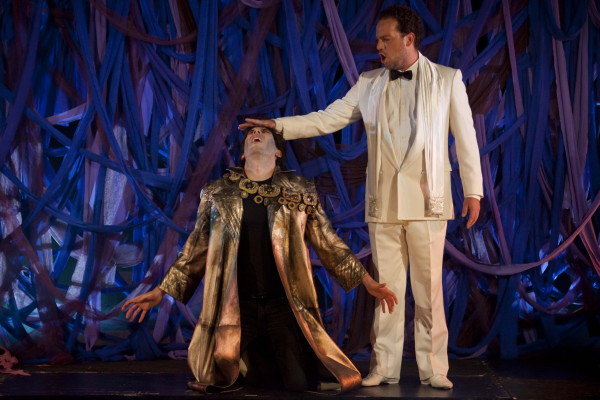 Brace Negron as Cain and Tom McNichols as God - photo credit:©Robert J Saferstein Brace Negron as Cain and Tom McNichols as God - photo credit:©Robert J Saferstein
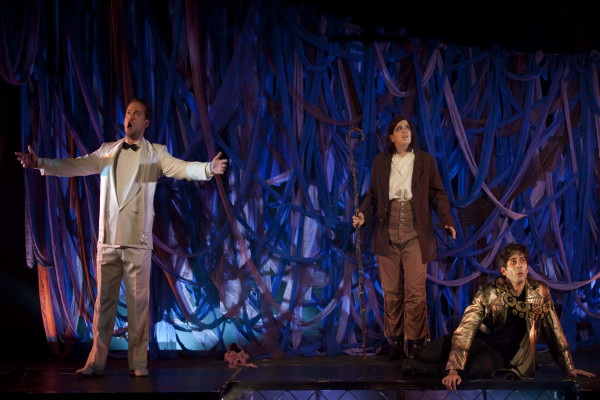 Tom McNichola as God; Blythe Gaissert as Zellah & Brace Negron as Cain - photo credit:©Robert J Saferstein Tom McNichola as God; Blythe Gaissert as Zellah & Brace Negron as Cain - photo credit:©Robert J Saferstein
Chelsea Opera’s first world premiere not thwarted by Hurricane Sandy
On the evening of Monday, October 29, 2012, Sandy, the worst hurricane in 100 years, slammed into NYC and the surrounding area. Chelsea Opera was preparing for its first world premiere production of The Mark of Cain that was to open in less than one week's time. Sandy had rendered most of lower Manhattan “dark” including our rehearsal space and our performance venue at St. Peter's Church. Our lighting equipment vendor was under water and other vendors were without power and fuel. During the next five days, the production team worked diligently to keep the production on track and be ready to move into action as soon as word was received that the power was back on. The heavens parted and the sun shone down with power being restored at the last moment allowing The Mark of Cain to proceed to performances. Despite major transportation disruptions, flooding, fuel shortages and challenges of every kind, it came to pass that The Mark of Cain opened on schedule to packed houses!
What did our audiences think?
“What a glorious performance. It was so beautifully lyrical, the singers superb,
the orchestra fantastic.” – DM
“The Mark of Cain is a very strong piece! Both music and libretto very fine! I was very impressed.” - JG
“Chelsea Opera works hard to get the best singers in the city and it shows.” - RE
“…the large audience enjoyed every moment of the very dramatic evening.” - TC
“The performers and production did everything possible to make the opera a success.“ Opera News -
Read review.
|
|
 |
|
CHELSEA OPERA ANNOUNCES ITS 10th ANNIVERSARY SEASON |
|
| |
|
Chelsea Opera’s 10th Anniversary season opens October 11 and 12, 2013 with the New York premiere of Ballymore – Part 1: Winners by Richard Wargo paired with Seymour Barab’s La Pizza con Funghi. Maestro Steven M. Crawford conducts.
The season continues with two "Chelsea Opera presents..." concerts: More Songs for My Brother on December 6, 2013 featuring mezzo-soprano Leonarda Priore, in honor and memory of her brother Nicholas S. Priore. This concert will raise funds for the Nicholas S. Priore New Possibilities Fund.
March 14, 2014 marks the second concert Musical Portraits featuring songs by living composers Anne Phillips, Ben Moore and Tom Cipullo.
On July 19, 2013 the first act of 13-year old Benjamin Wenzelberg’s The Sleeping Beauty will be workshopped. Benjamin is the first recipient of the Nicholas S. Priore New Possibilities Fund. Excerpts from the opera will be performed with orchestra on January 17, 2014 in collaboration with the Bloomingdale School of Music with Lawrence Davis conducting.
The season concludes with Aaron Copland's The Tender Land on June 13 and 14, 2014. Samuel McCoy conducts the chamber orchestra edition by Murry Sidlin with Lynne Hayden-Findlay directing both mainstage productions. |
|
| | |
 |
|
| SEASON TEN PERFORMANCES INCLUDE: |
|
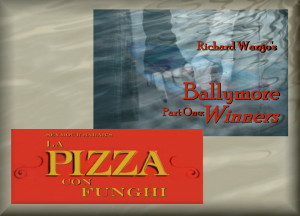
|
NEW YORK PREMIERE
Ballymore - Part One: Winners
music and libretto by Richard Wargo
...........and............
La Pizza con Funghi
music and libretto by Seymour Barab
October 11 and 12, 2013
Directed by Lynne Hayden-Findlay
Conducted by Steven M. Crawford
Assistant Conductor - Samuel McCoy
with the Chelsea Opera Chamber Orchestra
St. Peter's Chelsea-346 W 20th St., NYC
pref'd seats:$35adv/$45door
gen adm $30adv/$40door
srs/stdts:$20adv/$25door
 |
|
| |
|
|
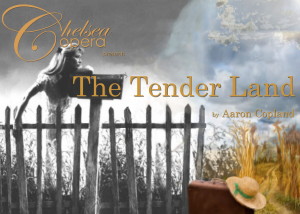 |
The Tender Land
by Aaron Copland
Libretto by Horace Everett
June 13 - 14, 2014
Directed by Lynne Hayden-Findlay
Conducted by Samuel McCoy
with the Chelsea Opera Chamber Ensemble
St. Peter's Chelsea -346 W 20th St., NYC
pref'd seats:$35adv/$45door
gen adm $30adv/$40door
srs/stdts:$20adv/$25door

|
|
| |
|
|
 |
|
| Chelsea Opera presents… |
|
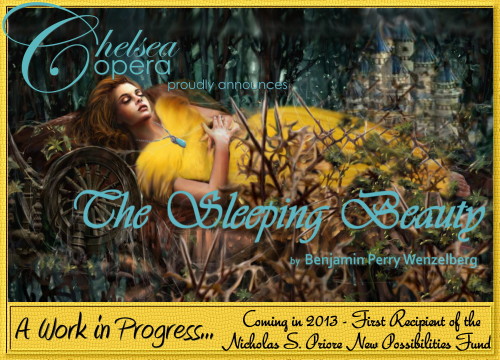 |
Opera Lab: The Sleeping Beauty a work in progress -
music and libretto by
Benjamin Perry Wenzelberg
The first recipient of The Nicholas S. Priore
New Possibilities Fund
July 19, 2013 at 8PM
More information
Christ and Saint Stephen's Church
120 W 69th Street, NYC
Gen Adm - $15 adv/$20 door
Snr/Stdt - $15 adv/$20 door
 |
|
| |
|
|
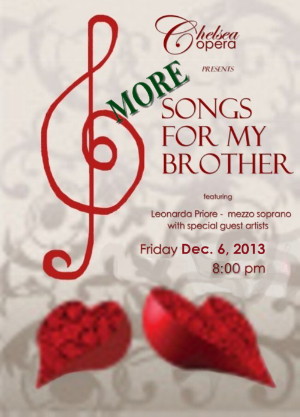 |
More Songs for my Brother
December 6, 2013 at 8PM
Celebrating the memory of long time supporter Nicholas S. Priore, Esq.
Proceeds to benefit the
Nicholas S. Priore New Possibilities Fund
Christ and Saint Stephen's Church
120 W 69th Street, NYC
Gen Adm - $20 adv/$25 door
Snr/Stdt - $15 adv/$20 door
 |
|
| |
|
|
 |
Musical Portraits
March 14, 2014 at 8PM
Featuring the music of living composers:
Anne Phillips
Tom Cipullo and
Ben Moore
Christ and Saint Stephen's Church
120 W 69th Street, NYC
Gen Adm - $20 adv/$25 door
Snr/Stdt - $15 adv/$20 door

|
|
| |
|
|
 |
|
| Spotlight and Conversation with New Board Member Gerald L. Potter: |
|
| |
|
 Gerald L. Potter Gerald L. Potter |
CO: Gerry, how did you become involved with Chelsea Opera?
GP: I knew Leonarda Priore from upstate New York. We were in the same voice studio and sang together on a number of occasions. |
|
| |
|
CO: What kinds of things did you sing there?
GP: For 9 years, I sang in a solo quartet at Temple Emanu-El in Utica. While at Grace Church, we performed portions of Mendelssohn's Elijah, which gave me the opportunity to sing the tenor solos. In Amahl and the Night Visitors, I performed the role of the Page with the Utica Opera Guild and Kaspar with the Mohawk Valley Opera Society. With that group, I also sang some of the ensembles from The Magic Flute and Cosí fan tutte. Until recently, I sang in my church choir on Long Island, where I live.
CO: Did you ever audition for Chelsea Opera?
GP: No, but they asked several times if I would like to sing in the ensemble. Unfortunately, my schedule at the bank where I work was a little prohibitive. But I was happy to come and support the productions. When Leonarda invited me to attend my first Chelsea Opera performance, I knew that it would be something wonderful and I was not disappointed.
CO: Before joining the Board, how did you help out the company?
GP: Well, being in the banking profession, they thought I was the perfect person to run the box office, which I have done now for several seasons.
CO: What is it about Chelsea Opera that you find so appealing?
GP: It's the intimacy of the productions that I find most appealing. Opera doesn't have to be grand to be great, and I think that is what Chelsea Opera proves in every production.
CO: What do you hope your involvement will bring to the board and to Chelsea Opera?
GP: I want to see Chelsea Opera continue for many years to come and will do whatever I can to help.
Gerald L. Potter, a Banker for almost 40 years, is currently an Assistant Vice President of Compliance at Metropolitan National Bank in New York City. Prior to MNB, Mr. Potter held audit positions with The Bank of New York and Bank of Utica. While at Bank of Utica, he served as President of the Utica Chapter of the American Institute of Banking (AIB), earning a Chapter of Excellence Award from the National AIB. Also during this time he earned the Volunteer of the Year Award from New York State AIB. He has served as treasurer for a number of organizations throughout his career.
Mr. Potter is also a graduate of the Boston Conservatory of Music with a BA in Music Education and a concentration in voice. He has had many opportunities to sing as a soloist and chorister in recital, opera, oratorio and church choirs and most recently sang in the Men and Boys Choir at The Cathedral of the Incarnation, Garden City, New York. He is a board member for the Cathedral Choirs Development Fund which supports the work of the choirs of the Cathedral. |
|
 |
|
COMPOSER GARY FAGIN AND LIBRETTIST TERRY QUINN DISCUSS
A DISTANT LOVE: SONGS OF JOHN AND ABIGAIL ADAMS |
|
| |
|
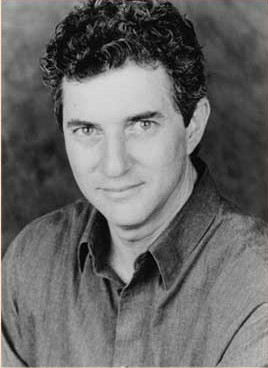 Gary S. Fagin Gary S. Fagin |
CO: The work is scored for string quartet rather than chamber orchestra. Why is that?
GF : The 1780s were breakthrough years for the string quartet. In 1781 and 1782 Joseph Haydn composed his six exquisite Opus 33 quartets and Wolfgang Amadeus Mozart began composition of ten celebrated quartets dedicated to Haydn that would
redefine the string quartet genre.
|
|
| Thus, it seemed appropriate to accompany John Adams in Amsterdam with a string quartet, the newest and most vibrant chamber music medium with which cultured Europeans would have been familiar in the 1780s. Although we considered using a different orchestration to accompany Abigail in the Colonies, the string quartet medium worked so well for John that we decided to keep it for Abigail. |
|
| |
|
| The score is predominantly lyrical, almost romantic, befitting John Adams' heartfelt affection for his Abigail, though at times the music is infused with an American folksiness reflecting his rustic and forthright nature. As Abigail was struggling to survive in the midst of an active conflict, her life was more fraught with drama than was John's life in Europe. Thus, for Abigail, the music has more contrast, ranging from militaristic rhythms to intensely personal lyricism. |
|
| |
|
| CO: Abigail and John wrote hundreds of letters. How did you “mold” them into a libretto? |
|
| |
|
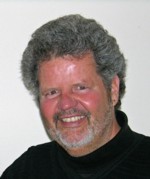 Terry Quinn Terry Quinn |
TQ: The libretto is designed to give a sense of the historic tumult that marked two critical decades in the life of an emerging nation. Yet we were at least as intent on fathoming the passions, hopes, doubts and anxieties of John and Abigail Adams – their complexities and half-hidden emotions, their most intimate thoughts. |
|
| The extensive correspondence of these two “dearest friends” gave us all the guidance we felt we needed in making the necessarily presumptuous leap to dramatic representation. |
|
| |
|
CO: If Abigail and John were to attend the performance in June, what would you like to ask them?
TQ: I guess I’d want to know what feelings they had about having words put in their mouth – to be sung, yet. I know how I feel about people who believe that my writing is greatly improved by their cuts, clarifications and re-shapings. Here the luminous Adams correspondence inspired every line of the text, but the couple said precious few of the actual words that appear in A Distant Love. Whole ballads in Abigail’s voice, for example, are not grounded in fact – only truth.
GF: If John and Abigail were to attend the performance in June, I think they would recognize and like the string quartet; I don't know about the music, but I expect they might get a kick out of some of the score.
Read more about how A Distant Love: Songs of John and Abigail Adams came into being. |
|

| |
CHELSEA OPERA INTERVIEW with MARGARET A. HOGAN
|
|
Ms. Hogan will present opening remarks at the June 15, 2013 matinee performance. |
|
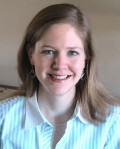 Margaret A. Hogan Margaret A. Hogan |
 |
| Margaret A. Hogan is the former managing editor of the Adams Papers editorial project at the Massachusetts Historical Society and co-editor of My Dearest Friend: Letters of Abigail and John Adams (Belknap Press of Harvard University Press, 2007). |
|
| |
|
Margaret Hogan sat with Chelsea Opera to tell us more about her “friends”, John and Abigail Adams. |
|
| |
|
CO: How did you become involved with the Adams papers?
MH: I was hired [by the Massachusetts Historical Society] to be an editor. I had a background in history and book publishing and they were looking for a new editor. Before I came to them I did not know much about the Adams family…just basic things in school. My background is in religious history and women’s history. So this was a little bit of a jump in a different direction.
CO: What was the process to transcribe the letters? Looking at them, they are very hard to read!
MH: They are and it takes some practice to learn how to read their handwriting. But it’s like anybody else’s handwriting. If you read a lot of it, you get used to it. You start out and it’s very slow but little by little you just become familiar with it. The Adams Family project has existed for 60 years now and they have been slowly transcribing all of this material over the years. When I started there was already a huge amount of material that had been transcribed and published. And in fact the organization and preservation of the papers dates back to John Adams himself. He was the first one to say “we need to preserve these papers.” In fact, he wrote to his grandchildren, “Whatever you write, preserve.” And that was kind of a family motto.
CO: What are three adjectives to describe John Adams…
MH: Brilliant, pompous and warm. I think John has a way of being human that you don’t always get from a Thomas Jefferson or a George Washington. And some of that is unfair because we have more of his letters to family. But I think he has sort of an earthiness. He loves farming and will write for hours about how to mix the right manure, and he agonizes endlessly over his children and over his wife, and over what he’s done with his life. I think there is a warm humanity to him that I find very appealing. Pompous because I think he was a little full of himself. He could laugh at himself, too, but he was ambitious, always wanted to deny that he was ambitious, he was a little bit on the vain side. He tended to want to be thought of and it was very important for people to think of him as the great “statesman.” And it killed him that other people got more credit than he did.
CO: And Abigail?
MH: Strong minded….they’re all going to be variations on the theme of determined….extraordinarily bright, a really smart woman, especially for someone who did not have the advantage of a formal education. And compassionate. I think that’s not something that comes across as clearly but she spent a tremendous amount of time caring for other people. She thought deeply and put a lot of her energy toward “what is right for people” and you see that a little bit in the “remember the ladies” letter.
Margaret has such tremendous insight into the personalities of John and Abigail. Learn more.
|
|
 |
|
ASK CHELSEA OPERA |
|
| |
|
| What inspired you to create Chelsea Opera? question from M & H |
|
| |
|
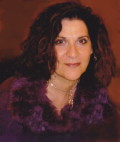 |
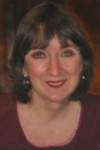 |
|
CO: Lee and Lynne, both professional singers, were trying to eke out a career and knew only too well how few opportunities there were to perform in a professional production. In 2004, they put their heads and purses together to produce Suor Angelica for which they both had friends whose careers could be helped by singing the title role in a fully staged production with a chamber ensemble. Lee would sing La Zia Principessa and Lynne wanted to direct. Because they wanted the public and the media to pay attention, they chose to use the name “Chelsea Opera” which was coincidentally the neighborhood where their performances were held.
They begged and borrowed whatever they could for props and costumes, and all of the singers performed gratis. The bulk of the costs were for rehearsal and performance space, printed programs, and a small honorarium to the conductor, totaling less than $3500, which was recovered in ticket sales.
They seriously had intended to produce only this one opera. However, reactions from cast and audience alike (“What is Chelsea Opera doing next?”) moved them into thinking about the next step. Following some research, they filed the articles of incorporation and worked on the 501(c)(3) application. Meanwhile, a small non-profit chamber ensemble agreed to serve as a conduit, enabling them to raise money for a second production, Cavalleria Rusticana. In this first appeal they raised almost $15,000. After filing the IRS application, Chelsea Opera was granted non-profit status eight days later. |
|
|
|
| How do you select the singers? question from RK |
|
|
|
CO: Several months in advance of holding auditions for a mainstage production, an announcement is sent out to a database of singers and to media in the opera business. Interested singers send back an email with their resume, headshot and audio and/or video sample. Each one is carefully reviewed with the demands of the role taken into consideration. A limited amount of time and money means that only a small percentage of those applying will actually get heard. Singers chosen to audition need to have a certain amount of experience at the professional level (e.g., with orchestra and not just at university).
The numbers are quite telling. For its most recent audition, more than 185 singers applied: 20 baritones, 33 tenors, 43 mezzos, and 93 sopranos. Only 8 singers in total will be hired for the fall operas. It is a tough and highly competitive business and singers need to shine in order to be considered.
Unlike other companies which hear the singers’ preferred arias, Chelsea Opera requires the singers to learn short excerpts from the production being done. This allows the producers to compare apples to apples, and makes the process all the more efficient. After hearing the singers, a very small number are called back for a second hearing. With each audition, it is hoped that the necessary and best singers will be found for each role. But if not, the search will go on, sometimes for weeks, until the right singers are hired for the production. |
|
|
|
| Do you have a question? Ask Chelsea Opera by writing to: info@ChelseaOpera.org |
|

|
|
THANK YOU FOR YOUR SUPPORT
We want to thank you for being part of our vision! Whether as a member of our audience, a friend, a donor or company artist, you are a stakeholder and a most crucial part of what makes Chelsea Opera special. It is for you that we have remained true to our mission: providing opportunities to professional singers and bringing critically acclaimed, quality productions of standard and new operas to the stage. We can only continue our commitment to producing “intimate and authentic” opera experiences with ticket prices that are affordable thanks to your generous support and contributions.
Your continued support is important and crucial, and we ask that you please support our mission by making a donation today. Make an easy, secure on-line donation at www.NYCharities.org, or download a donation form from our website www.chelseaopera.org.
Chelsea Opera productions are made possible, in part, by public funds from the New York City Department of Cultural Affairs, in partnership with the City Counsel, and with public funds from the New York State Council on the Arts, celebrating 50 years of building strong, creative communities in New York State’s 62 counties. |
|
| |
|
 |
|
|
|
| |
|
| |
|
|
 |
|
© 2015 Chelsea Opera. All Rights Reserved
|
|

